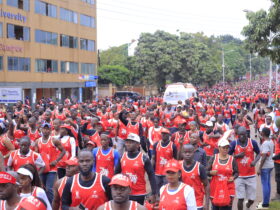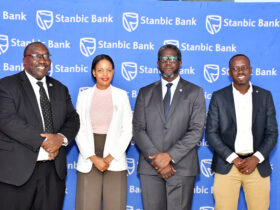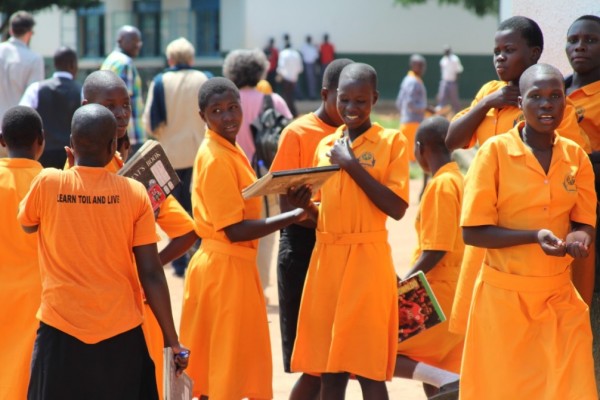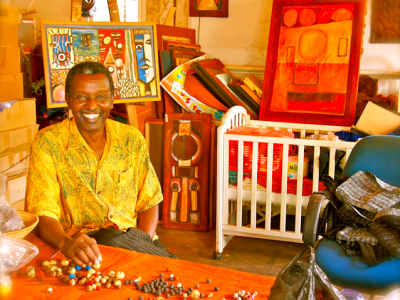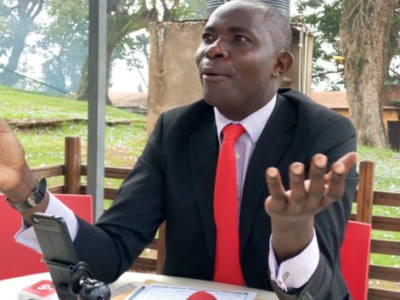The government last evening relaxed the Standard Operating Procedures (SOPs) and allowed schools with at least 60 per cent of the Covid-19 requirements to reopen today.
Under the new rules, the two must-have requirements for schools are maintaining two-metre social distancing and providing handwashing facilities.
Mr Benson Kule, the Directorate of Education Standards commissioner, confirmed the latest government stance and warned education institutions which hadn’t been cleared with a certificate of compliance against reopening.
“Two metres for beds; two metres between seats and the issue of hand washing facilities. Those two are main. If you have 60 per cent but you don’t have the two, we don’t allow you to open. We didn’t emphasize masks because the learners are not there [at the time of inspection of the schools]… but also government had promised to provide the masks,” Mr Kule said.
But some schools Daily Monitor sampled yesterday said they will reopen with or without the certificates because it wasn’t their fault that they hadn’t been inspected or given the certificates.
Ms Resty Namiiro, the head of the Covid-19 task force at Tropical High School in Kabalagala, said although they put in place all the SOPs as required, the inspection team hadn’t gone to their school.
“I went to the district inspection officer and she promised to inspect our school before we reopen but in vain. Just like you can see, everything is in place and we shall go ahead and reopen for our learners tomorrow (today),” Ms Namiiro said.
Kololo S.S. head teacher, Mr Edward Kanonya, hadn’t seen any inspector by yesterday evening when this newspaper visited the school in the city centre.
“I have not seen the inspectors but we are ready to start and receive the students. We must begin somewhere and keep improving. We are aware of the challenges and ready to learn from this experience,” Mr Kanonya said.
Mr Andrew Tainika, the head teacher of Janan Luwum Secondary School, said: “The ministry officials inspected us twice a month back but they did not come back for the final inspection. We do not have the compliance certificate but I can confirm that we have all the required SOPs in place.”
Some schools had started registering candidates from other schools who could not continue with their former schools either because they can no longer afford the fees or the schools had closed.
Six parents had contacted East Kololo Primary School management to have them placed in their school.
Gayaza High School head teacher, Ms Robinah Kizito, confirmed she had started receiving regrets from parents who will not be able to pay tuition on time but warned that each case will be handled uniquely.
She said only teachers with private cars for transport to work or reside at school were given workload.
She was, however, concerned that the costs like those for electricity were going to remain the same as when they were running a full school with all students yet only candidates will be accommodated to meet this cost.
“We deal with children and helping them appreciate they are living in a new normal is going to be a challenge. There are things they have to do away with like hugging, handshaking, being too close. Our parents always had a reason to come to school to check on their children. They are not allowed now. We hope they will take this in good faith and not come to see them,” Ms Kizito said.
Challenges
All schools we visited expressed concern over inadequate number of teachers, saying because of social distancing, they need more for the various classrooms, which were created but maintaining them is going to be costly.
In addition, schools have asked those teachers who don’t have private cars and are non-residents at a particular school to stay away from work.
The demand follows government’s guidelines that no learners and teachers will be allowed to use public transport to and from school.
This is part of the measures to keep learners safe and limit the spread of the virus. As of yesterday, the virus had killed 95 people in the country.
While only candidates have been allowed to report today in all education institutions, special needs schools had exceptions to open to all the learners for as long as they can maintain social distancing of two metres between the learners.
The Ministry of Education permanent secretary, Mr Alex Kakooza, advised parents to enroll their children in the nearest schools to their homes to avoid inconveniences in travelling long distance.
For those who don’t have private cars, government asked that schools work with urban authorities to put buses and vans on particular routes for teachers and learners to use.
“The schools, working with urban authorities shall organise dedicated vans/buses on designated routes to transport learners, including learners with special needs, who cannot walk or be transported privately. Such transport should be in a radius of 5kms and shall observe the SOPs. Teachers who are not accommodated at school and don’t use private transport shall use the dedicated school buses on designated routes. Learners and teachers shall not be allowed to move to and from school on general public transport, including taxis, vans and buses,” Mr Kakooza wrote.
Mr Kule, however, noted that there were inspection challenges in Kyenjojo, Kampala and Wakiso districts which he was trying to sort out in the evening.
He instructed the inspectors to announce schools which had been allowed to start on local radios for the people to know. “Don’t open if you have not been inspected. You must have a certificate of compliance before,” Mr Kule said.
Heads of schools at Kansanga Primary school, a UPE school and St John Baptist Catholic Church primary Schools, said they had been inspected twice but none had been issued a certificate.
Many schools which were running both day and boarding sections opted for the latter after government insisted they can’t run both under the Covid-19 crisis.
Some of the sops
- Each institution should re-arrange the seating of learners using all available rooms within the school to ensure the required social distancing.
- Where classrooms have temporary partitions, institutions should remove the partitions to create larger rooms for ample seating and aeration/ventilation.
- There should not be more than 70 learners in a room/hall of any size for a lesson or other purposes.
- A foot-operated handwashing facility shall be placed at strategic point of access to each block.
- There shall be no group and close contact co-curricular activities in all education institutions until further notice.
- Schools to operate either as boarding or day, but not both.
- should also have a qualified health worker in place, either permanently or part-time.


